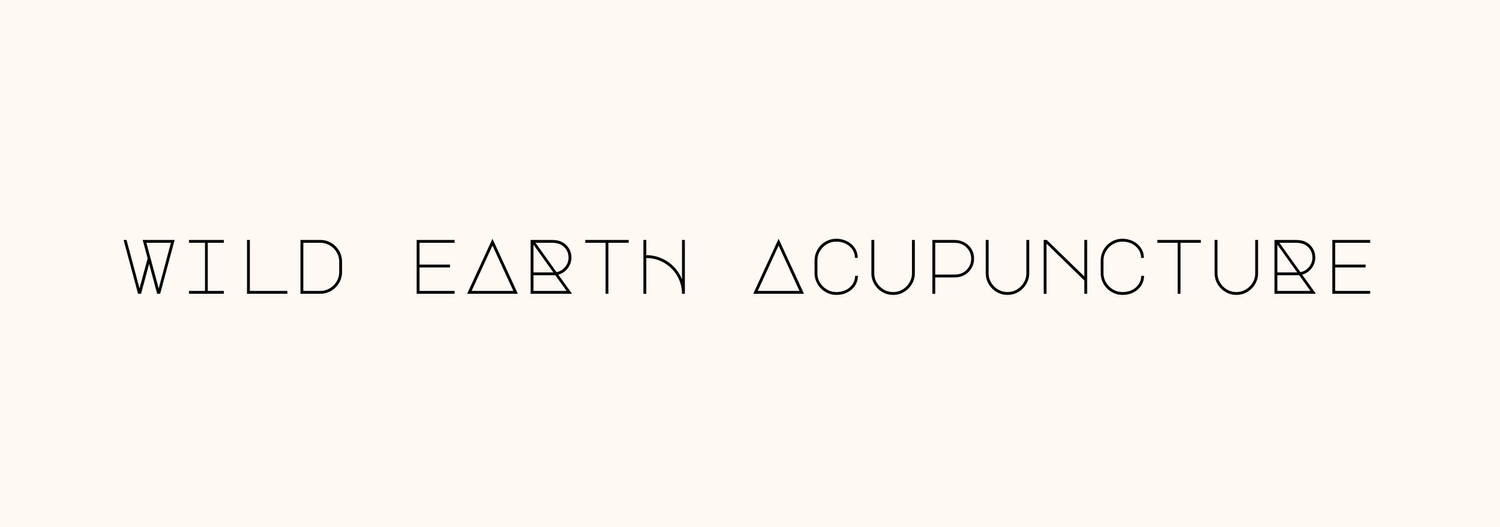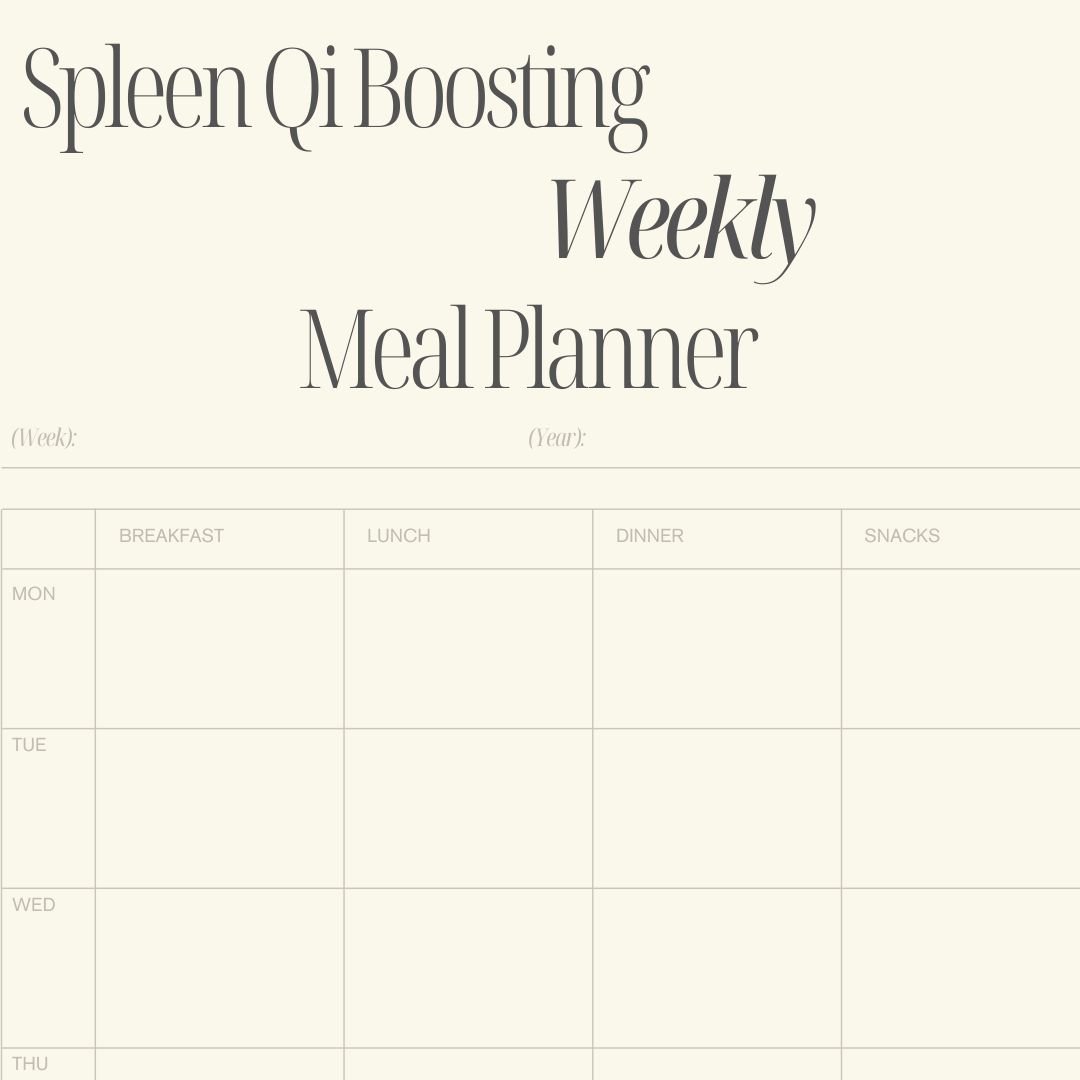Chinese Medicine Diet Recommendations
Chinese Medicine Diet- Learning ways to eat to bring balance to your body!
Chinese Medicine Dietary Therapy Explained
Traditional Chinese Medicine (TCM) is a holistic and comprehensive system of health that views the body in accordance with nature. It puts the utmost importance on lifestyle choices and nutrition. In TCM, there is no distinct difference between food and medicine, meaning that food itself can sometimes be all the medicine you need, and food is viewed as a powerful tool to help create and maintain wellness. You will often hear words like “dampness”, “Spleen Qi Deficiency”, or “Stomach Fire” when someone begins to explain Chinese Medicine nutrition and this article will help you define what those mean. We will first discuss some basic dietary recommendations and then, in the end, go into further detail about Chinese medical theory for those interested. Having a basic understanding of Chinese medicine theory is important for making educated choices when deciding upon your individualized diet plan. Read on to learn more.
The Basics Of The Chinese Medicine Diet
The basis of healthy eating in regards to TCM is similar to most well-versed diets, filled with fresh foods free from chemicals, preservatives, and over-processing. These foods are seen as the most vital and are full of Qi. Vegetables should be cooked lightly to preserve beneficial enzymes and vitamins. People should eat according to their particular constitution (more on this below!) with the morning's largest meal of the day. Beans and grains should be soaked and properly cooked for easy digestion. Not only is a healthy diet integral to optimal health, it is crucial to get physical and mental exercise as well as rest. Digestive function should be easy, pain free, and asymptomatic with bowel movements coming once a day in the morning. When digestive function is thrown off we can see things like bloating, irregular bowel movements, fatigue, or even acid reflux. One of the most common imbalances is the overabundance of dampness in the body. This can happen when the digestive system has been compromised for a prolonged period due to stress and improper food choices.
Whole, fresh foods, free from preservatives and over-processing
Eating according to your constitution and health goals
Focus on the nature and flavor of foods
Food As Everyday Medicine
There is a lot to learn when it comes to Chinese medicine and the Five elements, but even learning and incorporating the basics into your everyday life can have profound impacts. The main lesson here is to observe your body and its patterns to learn what it needs to find balance. Some simple ideas are if you are feeling overheated- eat cooling cucumbers, feeling bloated, or have edema- and cut down on your salt intake. A great way to incorporate healing foods and herbs into your diet is to make congee! (Recipe listed here!)
Here is a great compilation of recipes to try out.
A Little Bit Of Theory
One of the most unique, and in my opinion, potent theories of this nutritional plan is that every food and herb has a nature, flavor, and organ system/meridian associated with it. Its “nature” describes the effect of the food (or herbs) on the internal energy and temperature of the body, while “flavor” describes the taste. Flavor is often associated with specific Organ Systems and how it can tonify or balance these Organs.
Instead of viewing meals according to macronutrients, such as a breakdown of proteins, carbohydrates (sugars), and fats, Chinese dietary therapy utilizes the flavors and natures of foods as a guide to a well-balanced meal. Learning how to utilize the nature and flavors of foods and herbs is where this diet's true healing capacity lies.
There is also the belief that the seasons profoundly impact our well-being, and eating according to the seasons can greatly impact our health. We are immensely influenced by changes in the climate, and we should learn to live and eat in balance with those changes.
Chinese diet therapy also focuses on a mentality that “like treats like.” For example, if a woman has a particularly heavy menstrual cycle and is feeling fatigued, then eating some extra red meat or foods high in iron can help. If someone is struggling with pain in their joints, some bone broth can do the trick. Also, foods that resemble parts of the body are often used to help support that specific part: walnuts for the brain and pomegranates for women’s health.
Nature
Flavor
Seasonal Impact
5 Natures, 5 Flavors
Nature (Temperature)
The nature of foods and herbs describes the temperature changes that they cause within the body. An example of this is- warming foods help to move the Blood and Qi of the body to the surface and may cause sweating. This has to do with the energetic properties and inherent temperature-based nature of the foods themselves and how the foods are prepared or cooked (roasting, broiling, and heating equating to warm while iced and raw correspond to cold). Also, plants that take longer to grow, such as carrots, ginseng, cabbage, or rutabaga, are considered to be warmer foods than those that grow quickly, such as cucumbers, radishes, and lettuce.
Warming foods can help stimulate body functions, while raw foods can help cool us down. Too much hot or warming food can overstimulate our system while ingesting too many raw or cold foods can slow down our digestive processes. Like all things in Chinese medicine, it is about creating balance and finding harmony within your system, so eating a variety of warm and cool foods can help create a well-balanced diet. Check out this article for more information!
Hot
Warm
Neutral
Cool
Cold
Flavor
Understanding the five flavors of Chinese medicine is a very important part of its dietary therapy. They are associated with a specific organ system or meridian and they have inherent qualities that have a very powerful impact upon that organ itself. These flavors can help create balance within the body and can also help to bring a person into harmony with the seasons. It is also important to note that too much of a specific flavor can also do harm to its corresponding Organ System. For example, sweet foods can help to tonify the spleen/ stomach and improve digestive function, but too many sweet foods can result in weakening the digestive capacity and creating sugar imbalances like diabetes or metabolic syndrome.
Sour
Bitter
Sweet
Acrid (spicy/pungent)
Salty
(Additionally, some people consider Bland to be a flavor, but this isn’t directly associated with the five-element theory, even though bland foods and herbs can be very beneficial and are associated with diuretic actions. Otherwise, they are considered a division of the sweet flavor.)
Organ System Association
In Chinese Medicine, the Organ Systems (zang-fu) are a detailed blueprint of the makeup of the human form. The Organ Systems are not only the physiological tissue that comprises each vital organ but the entirety of its bio-mechanical pathways, mechanisms, and associations with nature such as emotion, taste, sense organs, season, color, and time.
The Five Flavors are directly linked with a specific Organ System and each flavor helps to benefit its related Organ system, but overconsumption of a specific flavor can cause harm as well. Sour foods are associated with the Liver and Gallbladder (as well as the health of our tendons and ligaments), so too much sour food can cause injury or pain and cramping of our sinews. Bitter foods, such as coffee, are associated with the Heart and Small Intestine organs in Chinese Medicine and while coffee can stimulate fluid circulation and help increase your metabolism, too much can be overly drying on your body.
Sour- Liver/Gallbladder
Bitter- Heart/Small Intestine
Sweet- Spleen/Stomach
Acrid- Lung/Large Intestine
Salty- Kidneys/Bladder
image thanks to catsnotes.com
Energetics And Therapeutic Uses Of The Five Flavors
Sour: Astringents, help to control Qi, blood, shen, and essence. Helps retain our needed body fluids, and moves inward and downward. Can help promote contraction in the digestive system.
Bitter: Clears and purges, helps to dry dampness, consolidates yin, and calms shen, has descending movement.
Sweet: Supplements, tonifies and moistens, reduces side effects of other herbs, lifting action, a great choice when conditions of dryness are present, such as some conditions of constipation.
Acrid: Causes upward and outward movement, dispersing, promotes Qi and blood circulation, lifting action.
Salty: Energetically leads downwards and softens hardness, helps purge, can help lubricate intestines, and helps remove waste accumulation.
Examples Of Foods Related To The Five Flavors
Sour: Some examples are pomegranate, vinegar, lime, lemon, fermented foods
Bitter: Parsley, mustard greens, kale, dandelion greens, collard greens, burdock root, coffee
Sweet: Rice, chicken, whole grains, sweet potatoes, cabbage, carrots, onions, squashes, corn, fruits, goji berries, honey
Acrid: These foods include things like scallions, daikon radish, ginger
Salty: Seaweeds, miso, sea salt, tamari, pickles, ocean fish, shellfish
Rice Congee- A well balanced chinese meal
Tips To Incorporate Chinese Medicine Into Your Life
Listen to Your Body
This is always number one! The best diet plan is one that works for the individual’s unique needs and specific constitution.
Eat With the Seasons
Eating according to the seasons is very important as our bodies also go through cyclical changes throughout the year. This is not only about eating fruits and vegetables that are currently in season but following the five-element examples of foods that can help bring you into balance.
Eat at Regular Intervals
The Earth element (spleen/ stomach organ systems) loves a routine, so eating at regular times of the day can help assist the gastrointestinal tract to perform optimally. And remember not to skip breakfast or eat more than you need!
Eat Moderate Amounts
It is important to listen to your body when it tells you it is “full” or has had enough. Overeating makes it hard for the Spleen and Stomach to effectively digest food and allocate the nutrients to parts of the body that need it the most. Underrating may leave the body malnourished or dehydrated leading to things such as constipation or slow healing times.
Make Breakfast your Largest Meal
The first meal of the day helps to ignite your digestive system and the morning hours are also the time when the organs of the digestive system are most active according to the Chinese medicine clock (stomach 7-9 am and spleen 9-11 am)
Cut Back on the Cold, Raw Foods
Too many cold foods can slow down our physiological processes, create dampness, and put out our digestive fires, so a Chinese diet tends to stay away from things like ice water, smoothies, and too many raw salads. Opt for room-temperature water, and slightly steamed vegetables, and if you are craving those crunchy raw salads, have a cup of nice warm soup or bone broth first. Go easy on damp-creating foods such as dairy, fatty foods, and refined sugars, which can slow down your metabolism and the spleen and stomach’s process of transformation and transportation, and may lead to sluggish activity of the Liver.
Cut Out Processed Sugars
Consuming too much processed sugars can eventually lead to dampness and a sluggish digestive system,
Eat Lots of Vegetables
Pretty simple advice- fill your plate with mainly fresh lightly cooked vegetables, and your body will thank you!
Cook and Eat Mindfully
Taking time to cook and eat is important, so slow down, turn off your phone, and chew your food fully. Mindfulness can help boost your digestion, turn around any unwanted relationships around food, and make you feel better all around. This new awareness can also help you tune in to any food sensitivities or foods that may not be best for your body. Try to avoid eating when you are stressed out or aggravated as this can negatively impact digestion.
Get Up and Move!
In Chinese Medicine, the root of many diseases is stagnation and lack of movement and Qi flow, so make sure you get your blood moving. Daily exercise can help boost your metabolism and improve your digestive function.
Digging Deeper Into The Chinese Medicine Diet
If you want to go deeper into Chinese dietary therapy, you should see a Chinese medicine practitioner or acupuncturist. They will be able to figure out a pattern differentiation of your current constitution. This will usually be an explanation of where the body is out of balance in regards to the Five Elements (fire, earth, metal, water, wood) or Organ Systems (Heart/Small Intestine, Spleen/Stomach, Lung/Large Intestine, Kidney/Bladder, Liver/Gallbladder). Once you have this information, you will be able to make more informed decisions about what flavors and textures of foods best nurture your body.
Chinese Tea Eggs
Chinese Medicine Diet Recommendations Part 2 - Check out this articel which focuses more on the nature and temperature of specific foods.
Commentary on pages from the “Nejiing Suwen, Yellow Emperor's Classic of Medicine” Chpt. 4
The NeiJing is an ancient Chinese text written sometime within the Han Dynasty (206 BC–220 AD) that is believed to not have been written by a single author or at a single time. This text is the foundation of the medicine and is still very much used today for theory and inspiration.
Chapter 4 discusses the five flavors. As noted above the flavors all are associated with an organ system as well as an element, or earthly phase. The correspondences referred to within these chapters also relate to categories such as the five colors, types of Shen, seasons, and associated body parts (see chart above). The usage of herbs and dietary changes speaks to the root of natural medicine as it tries to treat the cause starting with the least invasive technique to bring about the most change. This essentially lays the basis for the Five Element theory.
The Neijing speaks in metaphors and can be quite confusing if read like a story. But if you learn to read it slowly and go over passages a few times you can begin to understand its full meaning. As you become more familiar with tell-tale signs of patterns and the body’s reactions, these paragraphs will make more sense and have deeper and deeper meanings. I was especially intrigued when reading the passages about the power within observation. Observation skills can be very useful when trying to decipher patterns within our bodies and is a main diagnostic for practitioners to uncover underlying causes of disease. For example, the colors of the face, eyes, and tongue play a big part in using this as a tool for diagnosis.
These passages remind me of how powerful food and herbal medicine can be, and also slightly detrimental if not used properly. Contraindications of the five flavors are discussed in Chapter 23 and this passage brings more awareness about the importance of gaining true knowledge and acceptance of herbal medicine. I feel that the Classic texts offer great insight into being able to access the energetics of Chinese medicine. A blend of knowledge of the classic texts and new scientific discoveries make Chinese medicine, cutting-edge and super efficient. I feel that a stronghold in each of these categories is what makes for a master practitioner. This is a great book to access if you are trying to learn more about Chinese medicine, dietary therapies, longevity practices, and acupuncture.
As Master Hsuan Hua says-
“ The five flavors, sour, sweet, butter, pungent, and salty correspond to the five elements. Sour corresponds to wood, bitter to fire, pungent to metal, salty to water and sweet to earth. If you understand the nature of medicinal herbs and foods, you will see that the Heart, Liver, Spleen, Lungs, and Kidneys are also classified according to the five elements. The Heart (and Small Intestine) is also associated with the predominance of fire, the Liver (and Gallbladder) with the predominance of wood, the Spleen (and Stomach) with earth, the Lung (and Large Intestine) with metal, and the Kidneys (and Bladder) water. In the spring don't eat much of the sour flavor, you will get Liver sickness and the eyes cannot see clearly. In the summer, don’t eat much bitter, it will harm the Heart. In the late summer, you can eat more of the sweet flavor with no harm, as a little sweet is good any season, but don’t over do it. In the autumn, do not eat much of the hot flavor, you can get Lung sickness and in the winter, do not eat much salt, as it will harm the Kidneys. Don’t over do it and you will not get sick.”
Resources
Essential Tastes- A Guide to the Five Flavors and Immune Boosting Cookbook- written by Lenore Cangeloso, A great introduction and easy recipes to incorporate this into your life.
Ancient Wisdom, Modern Kitchen- written by Yuan Wang, Warren Sheir, and Mika Ono- A great book about dietary therapy
Healing with Whole Foods, Asian Traditions and Modern Nutrition- Written by Paul Pitchford- This book is amazing! A must have reference to TCM dietary therapy.
Chinese Nutrition Therapy- Written by Joerg Kastner MD.LAc. - An amazing reference to TCM diet, this and the book above are my top two references!
The Web that has no weaver- written by Ted J. Kaptchuk- A foundational theory text
Between Heaven and Earth- written by Harriet Beinfeild- Another foundational theory text
Wood Becomes Water- written by Gail Reichstein- Five element basics
*Please note - If someone is making dietary changes due to a chronic health condition, the changes should be slowly made to become a continuous part of their lifestyle for long-lasting results. All suggestions written here are only guidelines and each person should be individually diagnosed by a well-versed practitioner of Chinese medicine and dietary therapy based on a professional Chinese pattern diagnosis. If you want to learn more please don't hesitate to reach out and ask.
WANT TO LEARN MORE?
MORE FROM THE BLOG














































🔥 Your Guide to Safely Practicing Moxa at Home 🔥
Curious about moxa but not sure where to start? This easy, step-by-step guide will show you how to safely use moxibustion at home to ease pain, warm your body, support energy, and especially boost digestive function.
Perfect for beginners and seasoned wellness lovers alike, it’s packed with practical tips, clear instructions, and everything you need to feel confident and cared for. This guide is focused on using premade moxa poles, especially for digestive health and pain relief.
✨ Simple. Soothing. Rooted in tradition.
👉 Download now and light up your self-care routine with the warmth of tradition!